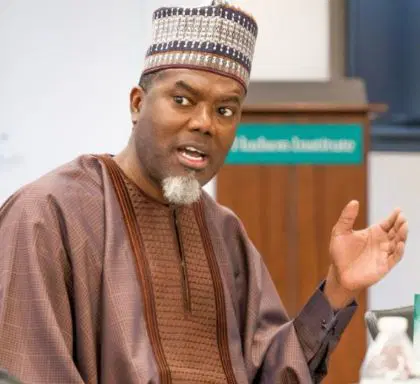A sharp commentary by former presidential aide and social media influencer Reno Omokri has thrust one of Nigeria’s most talked-about politicians — Peter Obi — into the spotlight again, not for what he said, but for what he did not say. In a post on his X account, Omokri warned Nigerians that they must never forget “the loud silence” of Peter Obi during “this time of crisis” for the country.
Omokri wrote: “No good leader ever goes under when the sound of thunder threatens his nation. Except such a person was the one who pointed the finger in the first place.” He followed with: “His silence is very pregnant with meaning, collusion and approval.”
In essence, Omokri argues that Obi’s failure to speak out in a moment of national difficulty speaks as loudly as any public statement. A man known for having “an opinion on everything” suddenly going quiet, he asserts, is both suspicious and ominous.
Peter Obi, former governor of Anambra State and one-time vice-presidential candidate, has one of the largest followings among younger Nigerians and critics of the status quo. He is seen by many as a reform-oriented voice in Nigerian politics.
Reno Omokri, on the other hand, served as Special Assistant to former President Goodluck Jonathan and now uses his social media platforms to comment on politics, governance and public life. He has become a polarising figure, alternately praised as a fearless commentator and criticised as a partisan provocateur.
The crisis that Omokri refers to is a broadly defined moment of national challenge—ranging from security threats, economic pressure, and political turbulence. While he doesn’t spell out exactly which event triggered his commentary, the implication is clear: Nigeria is facing serious trouble, and he believes Obi should have used his voice.
Omokri’s central point centres around silence as a form of communication. He suggests that when someone who normally speaks out on major issues remains quiet at a crucial time, that silence can signify one of the following: agreement with what is happening, collusion in wrongdoing, or a failure of leadership.
He writes: “His silence is very pregnant with meaning, collusion and approval.”
He emphasises that the moment for a good leader to step forward is at the height of danger—when “the sound of thunder threatens” the nation. A leader who remains silent at that moment, he argues, is not just passive but complicit.
In one forum, for example, one user wrote:
“Peter Obi is a coward. He is a traitor to Nigeria and Nigerians. Anyone who can keep quiet during such a time is not fit to lead any group of people.”
Another countered:
“I actually love the silence by Peter Obi. … APC should take care of the problems they caused this country by themselves.”
Clearly, the debate is more than about words—it cuts to how different Nigerians view the role of opposition, dissent, and leadership.
This moment of critique comes at a time when Nigeria’s democracy is under strain. Issues such as insecurity, economic hardship, weakening public institutions and concerns about the strength of political opposition are high on public concern. In that environment, public figures like Peter Obi are expected by many to speak up, offer direction, or challenge the status quo.
Omokri’s critique taps into that expectation. If someone who claims moral authority and leadership qualities chooses silence at a critical moment, what does that say about opposition politics? What does it say about the ability of Nigerian society to hold leaders and influencers to account?
For many Nigerians, a leader’s voice matters. For others, action—or the lack of it—speaks more loudly than words. The deeper question raised is: what is the duty of a former governor and national figure when the country is facing what some perceive as existential threats?
Nigeria has long wrestled with questions of accountability, leadership and the role of public voices during crisis. Whether it was the military era, transitions to civilian rule, or the current set of challenges—leaders have often been measured not just by policy but by presence and voice.
In recent years, as digital media amplifies commentary and public expectation grows, the role of the non-governmental leader—activist, former governor, expert commentator—has become more visible. With that visibility comes scrutiny. And as Omokri points out through his critique, silence may no longer be a safe space.
Peter Obi’s ascendancy in Nigerian politics was built in part on his willingness to speak truth to power. If his critics are right, then this moment may be seen as a test of that legacy. Whether he will respond remains to be seen. But for now, Reno Omokri has ensured that the silence is part of the story.

